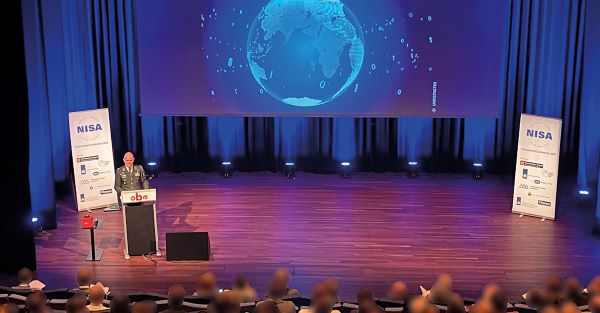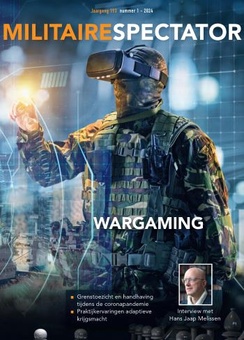On 25-26 October 2023 the Netherlands Intelligence Studies Association (NISA) held its bi-annual international conference in Amsterdam. Founded in 1991 the NISA aims to further academic research and education regarding (counter)intelligence and security developments. It brings together academics, media representatives, (former) practitioners, and others within the (semi-)government, NGOs and private sector, taking an interest in intelligence and security.
Themes
The NISA Conference 2023 touched upon a broad variety of disciplines and topics, covering the following three main themes:
1 Geopolitical developments
Is the world heading for a new Cold War? Or worse, for that matter. Heated disputes and frozen conflicts abound. Tensions are building up or outright hostilities breaking out, as evidenced by Taiwan, Ukraine and Gaza. Established powers seem increasingly competitive in protecting and expanding trade interests as well as ideological influence spheres domestically and abroad. Can different (academic) perspectives help understand the present and future better, supporting policy-makers in making rational decisions in tense political climates?
2 The digital transformation of intelligence and security services
What implications does this have for the intelligence and security services? What lessons can be learned from history and what challenges lie ahead? An incredible and increasing amount of information has become publicly available, ranging from social media data on emerging trends and public sentiment, granular satellite imagery, to real-time geolocation data. Open source intelligence (OSINT) has gained a solid place within intelligence tradecraft, and Artificial intelligence (AI) is about to become part of this same toolbox.
3 Intelligence culture
Though less visible, the all-important social undercurrent of intelligence developments was not forgotten by the conference organizers as shown by the conference programme. Several presentations paid attention to this less visible, more difficult to pinpoint, but crucial phenomenon.
Around these themes a range of interesting plenary sessions, panels, workshops, and roundtables was organised on, for instance, new research agendas, OSINT- and software tooling developments, strategic communication and/or public disclosure. In addition there was a specific PhD-track addressing a variety of research topics, such as AI-developments influencing intelligence efforts - for better or for worse - effect measurement of intelligence activities, investigating economic security issues, and (methodological) comparison of intelligence versus security services.

MIVD’s Director, Major-General Jan Swillens, pointed out in his speech that intelligence services are in the front line in the so-called grey zone - below the threshold of outright war - on a daily basis. Photo MIVD
Keynotes
The backbone of the two-day conference was formed by four key-note addresses. The practitioners’ side was prominently represented by the Dutch Defence Intelligence and Security Service (DISS), also known as MIVD (using its Dutch acronym).
The MIVD’s present Director, Major-General Jan Swillens, delivered a speech entitled: ‘In the front line in the greyzone and in war. From secrecy to action.’ Zooming in on geopolitics and today’s information society he referred to shifts in the global balance of power, digital transformation, disruptive technologies and developing conflicts. While emphasizing that the MIVD will be in the front line in case of war, he pointed out that intelligence and security services are already in the front line in the so-called grey zone - below the threshold of outright war - on a daily basis right now.
In his speech Maj-Gen Swillens alluded to the digital transformation by mentioning the keynote of Dr. Ir. Patricia Damen, former Head of the Dutch Joint Sigint Cyber Unit (JSCU), currently Head of Data and Information Management of the MIVD. In her speech - ‘Towards a data-driven intelligence service’ - data was omnipresent, which she discussed from a technical as well as legal perspective and illustrated with current examples to give an insight into the challenges that are now being faced. Dr. Damen considers (access to) data as the oxygen of the intelligence process. No data, no intel! To get the most out of data, the two Dutch intelligence and security services (MIVD and AIVD) are therefore transforming to become data-driven intelligence services. Technological developments in the outside world, such as Artificial Intelligence, robotification, and automation, are evolving rapidly. These developments can be a positive change if incorporated in the intelligence process in a compliant way.
The other two keynote contributions to the conference were delivered by two distinguished members of the academic community.
Dr. Mark Galeotti, political scientist, well-known expert and prolific commentator on Russian security affairs, took the floor with a presentation entitled: ‘Lessons in War. What have we learned from and about Russian intelligence since February 2022’. In his speech he zoomed in on the Ukraine conflict to illustrate the role of Russia’s intelligence community and culture and President Vladimir Putin’s use of the intelligence and security apparatus as an instrument of authoritarian (personal) rule.

Dr. Mark Galeotti zoomed in on the Ukraine conflict to illustrate the role of Russia’s intelligence community and culture. Photo LMC
Academic researcher Dr. Ryan Shaffer tackled the dominant Anglo-Saxon perspective in intelligence and security studies by drawing attention to the African and Asian spheres. In his presentation with the title ‘Africa and Asia in intelligence studies. State of the field and the need for further research’ he advocated the importance of investigating intelligence culture(s) in general and their differing points of view. More in particular he zoomed in on the understudied non-western variant as illustrated by, for instance, the East-African (Kenyan) and West-African (Nigerian) experience.
Discussion
The two-day conference provided ample Q&A opportunities and fruitful discussions centering around the above mentioned themes. Under the Chatham House Rule, participants discussed three crucial conditions to be met in order to deliver intelligence and security to society and protect democratic values. Whether in the grey zone or in war, intelligence services need to be ready and able to:
1 Secure strategic access within a rapidly changing technological and legal context
Securing access to critical information is at the core of intelligence work. Cooperation - national and international - with partners is essential. As is close cooperation with the academic world and the private sector, including the NISA-community, in order to stimulate a well-informed debate, help society understand the technical developments, picture the dilemmas and threats to national security and fundamental rights, and offer guidance to possible solutions and pathways from different perspectives. The conclusion: intelligence and security services need to be smart cooperators to keep their concepts, modus operandi and technological base up to par.
2 Quickly distil relevant intelligence from large datasets
Data collection, labelling and processing are of the utmost importance to that effect. No data, no intelligence. Besides the undeniable importance of technical developments it was agreed upon that compliance issues, data literacy and external developments, such as (generative) AI or ChatGPT, Quantum, OSINT, etc., are instrumental for intelligence and security services to becoming high-performing data-driven organisations.
3 Shift from secret intelligence to actionable intelligence
Intelligence and security services are warning more openly about the importance of economic and knowledge security. At the same time they are opening up more and more, becoming more involved in public life, actively exploring and experiencing the advantages and disadvantages of public exposure.
Conclusion
In a few years’ time the following NISA-venue will provide the opportunity to look back upon the key message of the 2023 conference and ascertain what has been and still needs to be achieved. Intelligence and security services today are in the front line in the grey zone and in war. They need to have access to crucial information, distil intelligence from acquired data, and be able to shift from secrecy to action, in order to detect, deter, and defend. National and international cooperation to that effect is key. Within the western context the services are challenged in the coming years to manage a transformation into smart cooperators with future-proof licenses to operate. The outside world as exemplified by the NISA-community needs to be part of this transformation by sharing knowledge and experience, giving feedback, and tackling obstacles with respect to each other’s specific roles and responsibilities.
